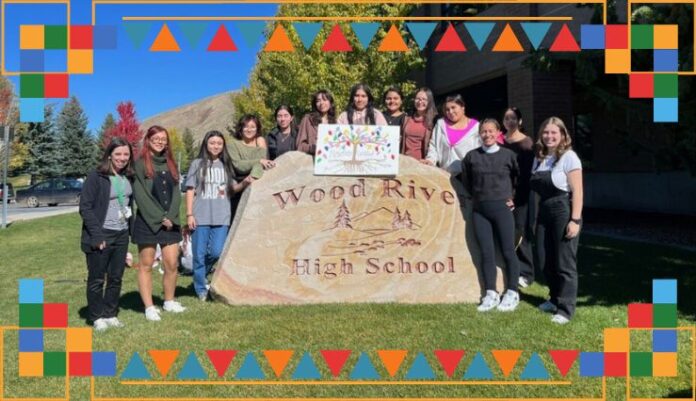By Monica Carrillo
Marisol Marquez was 17 years old when she reached out to her teacher about wanting to start a club.
Brainstorming together and talking to students about their thoughts on a new club, they were able to make it happen — creating a sense of belonging for many Latino students the past few years.
“It made me realize that my passion is helping other students,” said Marquez, who is now a 5th grade teacher in California.
Marquez started Nosotros United in 2017 and has been known for bringing together Latino students, who often feel isolated and lack belonging in many places of the school.
She said prior to bringing it up to Michel Sewell, enrichment coordinator at Wood River High School, she had attended the “Hispanic Youth Symposium” at College of Idaho in Caldwell.
There, she noticed the amount of support many of the other Latino/Hispanic students had at their schools. Many students from those high schools had several students attending, whereas there were only five representing WRHS.
“I saw the lack of academic support we had in the valley for our population,” Marquez said. “I saw a high population of Latino students from across the state who all were ambitious in achieving higher education and at Wood River, I would see how divided our school was and how isolated the Latino population was.”
Since then, this club has been able to grow in popularity, bringing in speakers like Dolores Huerta, labor leader and civil rights activist, said Marquez, and Cesar Chavez’s grandson, Eduardo Chavez, who has spoken about the issues his grandfather endures as a farmworker.
Through this club, many students have also gained leadership roles, many of whom have gone on to colleges like Middlebury College, Bates College and even Stanford University.
“When you are at that age, everything is so stressful with balancing school and a social life. Plus, growing up in a 1st generation Latino household it is really difficult to receive academic support — even the college process was super intimidating for me. I was so scared of not filling applications correctly or even being able to afford going away for college,” Marquez said.
“Nosotros United helped bridge that gap by giving me a safe quiet space to study and support from amazing teachers who would help tutor us.”
However, after Latinos in Action, a nonprofit organization that offers a year-long elective course taught by a teacher to empower Latino students, came to the school, Nosotros United was declared paused for the year, with students feeling mixed emotions about it.
Celeste Quispe-Meza, a junior at WRHS, joined Nosotros United her freshman year and was hoping to join again this year to try and pursue a leadership role for the club.
After she found out it was paused, she became frustrated.
“Honestly, I was really sad because I wasn’t here for my sophomore year. I had gone to a different school for my sophomore year, and I was really missing the club, so when I came back, I was just really excited and hopefully have some sort of leadership position and follow in the footsteps of my cousin,” Quispe-Meza said.
She said through her experience, she saw the club as a positive influence in informing the community and was amazed by the turnouts each event’s outcome. She hopes the club will come back next year before she graduates.
“I really loved it,” she said.
Quispe-Meza also said that even though she isn’t completely against Latinos in Action, she feels that with the influx of Latino/Hispanic community members, this club is more beneficial now.
As of right now, Blaine County’s Hispanic population stands at 23.5% according to DATA USA and its largest annual population increase being 5.8% between 2019 and 2020.
“In a way, we are kind of lost, especially in a completely new environment, in a new country where we’re not familiar with language so I think clubs like this are a great way to fit into something that we’re already comfortable with,” Quispe-Meza said.
“We have the opportunity to create events to integrate more Spanish-speaking students and their families, and I think it’s just a great way to spread positivity around the city and around school.”
Marquez adds that a club specifically for the Latino community can make a difference on how they view life after college, especially students who might be new to the area.
“There’s students who have received financial support from the club which has made a difference in whether they go to a school or not,” Marquez.
“I think it also just makes you feel okay to talk about why you might need more support from teachers than some peers.”



